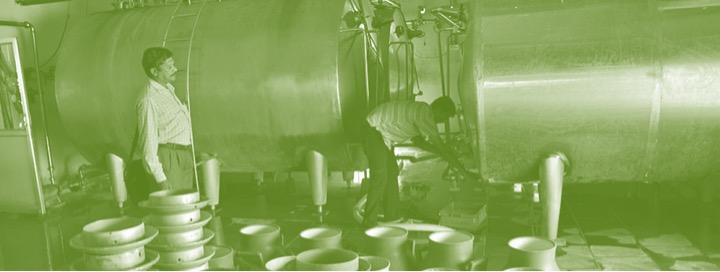Pressing for a need to address the climate impact on animal husbandry sector, Parshottam Rupala, Union Minister for Animal Husbandry expressed the need to explore ways to reduce adverse impact of extreme temperatures on milk production.
At a seminar on Mitigating the adverse impacts of climate change on Animal Husbandry & Dairying, jointly organised in Anand by National Dairy Development Board (NDDB) and National Council for Climate Change, Sustainable Development and Public Leadership (NCCSD), the Union Minister said to in order to reduce Green House Gases (GHG) emission in the dairy sector, it required that the policies and programmes emphasising appropriate animal breed selection along with balancing of ration and other such steps to improve the productivity of animals are implemented.
Rupala also released bi-annual reports of NDDB-supported Mujkuva Solar Pump Irrigators Cooperative (MSPICE), India’s first grid connected enterprise & Zakariyapura Sakhi Khad Sahkari Mandali, women manure management co-operative.
Meenesh Shah, Chairman, NDDB, Kirit Shelat, Executive Chairman, NCCSD among other prominent dairy sector leaders were present at the seminar besides the experts, scientists, academicians and farmers who participated in the deliberations.
In his address, Shah, Chairman, NDDB said, “NDDB is committed to mitigate impacts of climate change and promote climate smart dairying. NDDB’s manure value chain is using dung as a source for biogas used as cooking fuel and slurry-based organic fertiliser to reduce methane emissions and also to provide additional income to farmers. NDDB has also been promoting adoption of solar energy at various levels of the dairy value chain to reduce use of non-renewable sources of energy.”
Resilient to challenges
He added, “A combination of traditional knowledge and scientific techniques can make India’s dairy sector more resilient to the challenges posed by climate change.”
According to Shelat, the warming trend has been going on for a long time. “Its pace has significantly increased. The adverse effect of rising temperatures has led to a reduction in animal productivity and spread of new diseases.”
The technical sessions focused on areas like — possible impact of climate change on livestock in tropics & ways to mitigate, role of Indigenous breeds in climate change scenario, strategies for mitigating climate change through nutritional interventions.
Source : The Hindu Businessline Jan 17th 2023

